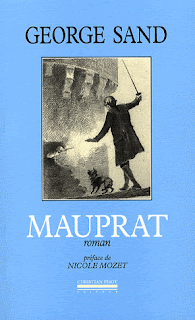When I mentioned I intend to dedicate many reviews to the Russian literature, I was being very serious. However, I will jump almost two centuries ahead to present you with a contemporary Russian novel - Sergey Minaev's The Chicks.
Sergey Minaev is one of the most promising Russian authors. Every book he writes is a bestseller, every word is a precise criticism of the flaws in the modern world. Before The Chicks he has published two other novels - Dukhless denounces the defects of the satisfied society, whereas Media Sapiens shows the mechanisms used by popular media to manipulate people. Given I enjoyed The Chicks a lot, I will definitely spend some money on these two books as well.
 The novel discusses some of the most pressing problems of contemporary Russian society through the portrait of a gossip writer. Andrey Mirkin is indomitable, ruthless, and manipulative and runs his own rap group. He dates two girls at one time - the ambitious businesswoman Lena and the model and PR manager Rita. His life is marked by endless partying - cocktails, clubs, reckless sex, alcohol, and drugs; until Mirkin meets the innocent Katya and falls in love for the first time. However, this encounter changes his life perceptions through a brutal face-to-face with reality. Andrey is confronted with the consequences of his carelessness, only to realize the vanity, falseness, and immorality of his way of life.
The novel discusses some of the most pressing problems of contemporary Russian society through the portrait of a gossip writer. Andrey Mirkin is indomitable, ruthless, and manipulative and runs his own rap group. He dates two girls at one time - the ambitious businesswoman Lena and the model and PR manager Rita. His life is marked by endless partying - cocktails, clubs, reckless sex, alcohol, and drugs; until Mirkin meets the innocent Katya and falls in love for the first time. However, this encounter changes his life perceptions through a brutal face-to-face with reality. Andrey is confronted with the consequences of his carelessness, only to realize the vanity, falseness, and immorality of his way of life.Similarly to Paulo Coelho, Minaev condemns society in the beginning of the 21st century. People have abandoned moral and ethical rules and worship only one God - the God of attractiveness. Everything has to be beautiful - botox has replaced wrinkles; how you look is more important than what you think; who you wear says more about you than what you say. Minaev proves people are getting stupider by the minute: they are fascinated by the glamourous life of the Superclass, failing to realize its shallowness, senselessness, and vanity. I love you has become an introduction just like How are you; the word has lost its value just as feelings have devalued. Thus, through the encounter between Mirkin and Katya Minaev questions: Is true, honest, and loyal love possible in this immoral and cynical world?
Do not be shocked by the vulgarity of the language in the novel. In The Chicks Minaev uses the jargon we hear on the street corner, in the cafe, and sometimes in the media to give a true, still sad portrait of the values (or lack of those) of contemporary society. People are aggressive and ruthless; they like ugliness and scandal; they do not care about friendship, compassion, and love, but about money, power, and sex. The worlds of Minaev in The Chicks and Coelho in The Winner Stands Alone are similar - worlds dominated by hedonists and consumers; worlds where everything is available, yet nothing is real and valuable.
I strongly recommend this book as a complementary reading to the Portuguese author's works. I enjoyed it even more than Coelho because it is a more faithful representation of our world. Paulo Coelho keeps up the good tone, whereas Mirkin describes reality the way it is - ruthless, vulgar, cynical, and unfair.













